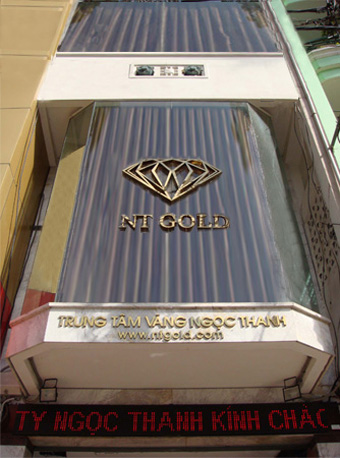“The dollar has seen some weakening pressure against the kyat and that is quite a big pain for exporters,” Toshihiro Mizutani, managing director of the Japan External Trade Organization in Yangon, said in an interview on March 28. “If they can manage to keep it from rising fast it would help.”
The biggest financial market policy shift since President Thein Sein took power a year ago is an attempt to unify the multiple exchange rates in the Asian nation of 64 million people. The official rate, pegged to the International Monetary Fund’s special drawing rights, is 6.4 kyat per dollar, about 125 times stronger than the black market rate and available only to state-owned companies.
The central bank plans to gradually unify the “various” other rates used by private enterprises and influence the market rate, it said in a statement published in the state-run New Light of Myanmar this week. The bank will publish a reference rate for its currency daily starting April 1, scrapping a 35- year fixed exchange rate, it said.
It may set the new official kyat level near the black- market rate at about 820 to the dollar, which has appreciated from about 1,055 in 2009, according to a research report yesterday by Bank of America Corp.’s Merrill Lynch. The currency may be allowed to move as much as 2 percent either side of the reference rate, the U.S. bank said.
Chinese Example
China also had an artificially strong currency until 1994, when it abolished foreign-exchange certificates that had allowed state-owned companies to buy dollars cheaper than in the black market. Exporters were able to use a weaker exchange rate for the yuan when bringing dollars back to China. The official and market rates were unified at 8.7 yuan per dollar under a “floating exchange-rate system,” devaluing the yuan’s official rate by 40 percent.
“A managed float means it will be controlled around a fixed range and should benefit everyone because it creates a bit more stability,” Saktiandi Supaat, head of foreign-exchange research at Malayan Banking Bhd. in Singapore, said in an interview yesterday. “It’s going to be somewhat similar to what China is doing.”
Bordering China and India and with the second-largest land area in Southeast Asia behindIndonesia, Myanmar’s resources include rubber and natural gas, as well as deposits of gold, copper and gemstones. Gross domestic product is projected to increase 5.5 percent this year, the same pace as 2011, according to an IMF estimate.
Imports Surge
Exports increased 19 percent in the fiscal year through March 2011, while imports surged 55.5 percent, according to JETRO, citing Myanmar government data. Thailand was the country’s biggest market, taking almost 33 percent of overseas shipments, followed by Hong Kong and China. China is the biggest source of imports, followed by Singapore and Thailand.
“They have natural resources and they have a lot of interest coming in the form of investment,” Malayan Banking’s Supaat said. “The pressure is towards greater appreciation.”
Scrapping the complex multiple-rate system would reduce constraints on growth in a country with the potential to become “the next economic frontier in Asia,” the Washington-based IMF, which has provided guidance to Myanmar, said on Jan. 25.
“It levels the playing field, makes life easier, more transparent, more rational,” Sean Turnell, a professor at Macquarie University in Sydney who has researched Myanmar’s economy, said in a telephone interview on March 29. “It was never possible to be entirely sure who was using what rate, and that opens the window to rent-seeking and corruption.”
U.S. Sanctions
The U.S. and European nations have pledged to review sanctions after April 1 by-elections involving dissident leader Aung San Suu Kyi. The U.S. bans imports from Myanmar, restricts money transfers, freezes assets and targets jewelry with gemstones originating in the country. The European Union bans weapons sales and mineral imports.
Local laws prevent foreign banks from conducting transactions in the country, something that must change in 2015 as part of an agreement with the 10-member Association of Southeast Asian Nations. As of November 2010, 13 foreign lenders had set up representative offices in Myanmar, including 10 from Asean member countries, according to the central bank.
China was the largest foreign-direct investor in Myanmar between from 2007 through 2011, pumping about $19 billion into economy, followed by Thailand and South Korea, according to data on the Central Statistical Organization’s website.
“The currency reform will be positive for overseas companies doing business there,” Roh Dong Hoon, a Seoul-based senior manager at Daewoo International Corp., a trading company involved in a natural gas project in Myanmar, said in a phone interview on March 29. “Last year, the currency strengthened to 700, and it was difficult for some foreign companies there as they earn money in dollars, but have to pay income to local workers in kyat.”
To contact the reporters on this story: Yumi Teso in Bangkok at yteso1@bloomberg.net; Daniel Ten Kate in Bangkok at dtenkate@bloomberg.net; Lilian Karunungan in Singapore atlkarunungan@bloomberg.net
To contact the editors responsible for this story: Sandy Hendry at shendry@bloomberg.net; Tony Jordan at tjordan3@bloomberg.net
| TIME | |||||
|---|---|---|---|---|---|
| Sydney | Tokyo | Ha Noi | HongKong | LonDon | NewYork |
| Prices By NTGOLD | ||
|---|---|---|
| We Sell | We Buy | |
| 37.5g ABC Luong Bar | ||
| 9,134.60 | 7,884.60 | |
| 1oz ABC Bullion Cast Bar | ||
| 7,633.10 | 6,533.10 | |
| 100g ABC Bullion Bar | ||
| 24,338.80 | 20,838.80 | |
| 1kg ABC Bullion Silver | ||
| 4,818.10 | 2,818.10 | |
Powered by: Ngoc Thanh NTGold
- Online: 176
- Today: 1816
- Total: 6930956














